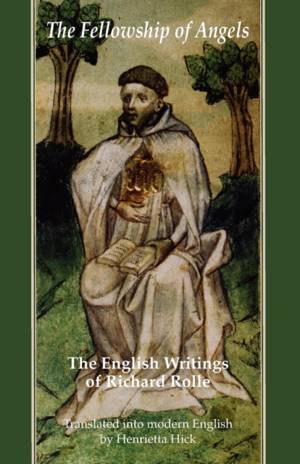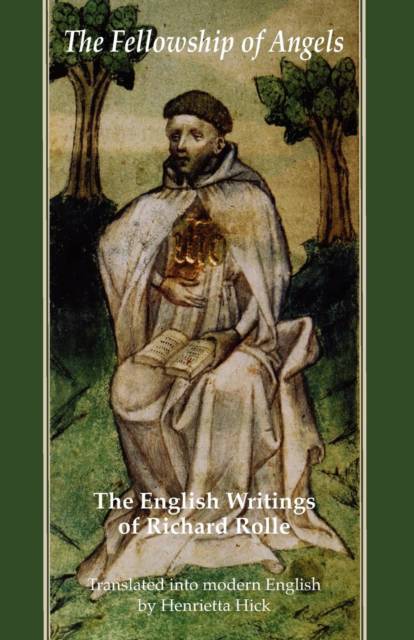
- Retrait gratuit dans votre magasin Club
- 7.000.000 titres dans notre catalogue
- Payer en toute sécurité
- Toujours un magasin près de chez vous
- Retrait gratuit dans votre magasin Club
- 7.000.0000 titres dans notre catalogue
- Payer en toute sécurité
- Toujours un magasin près de chez vous
15,45 €
+ 30 points
Description
RICHARD ROLLE of HAMPOLE was born about 1300 at Thornton-le-Dale near Pickering. He studied at Oxford, but left the university without a degree in order to become a hermit, 'Now-a-days too many are consumed with a desire for Knowledge rather than for love, yet all their study should have been directed to this end, so that they might be consumed by the love of God . . . an old wife can be more expert in the love of God, and less worldly, than your theologian with his useless studying.' Richard was helped with bed and board while he preached and wrote on the love of God, and the Holy Name of Jesus, and he moved from place to place as circumstances demanded. He finally settled at Hampole, near Doncaster, and became friend and spiritual director to a convent of nuns, who regarded him with affection, and after his death prepared an Office and Vita recounting his miracles 'For after he will have been canonised by the Church'. Not all approved of this freelance, wandering holy man, though he was loved by many, and his writings were widely read for three hundred years. Richard was the first to translate the Psalms into English since the Norman Conquest, and it is possible that other surviving works can be ascribed to him. His writings are poetic and highly charged with emotion - to the disapproval of some other mediaeval 'Mystics', whose works are arguably less appealing. 'And my dear sister in Christ, it is my will that thou love him, for while thy heart is fastened to any bodily thing, thou mayst not be perfectly coupled with God . In Heaven are nine orders of angels . . . the least is brighter than the sun, as the sun is brighter than a candle . . . also are the orders in Heaven each brighter than the other from angel to Seraphim. This I say to kindle your heart to long for the fellowship of Angels.' Richard Rolle is thought to have died in the Black Death of 1349. This book provides a brief, clear introduction to his life and work, and a selection from his prose pieces and devotional poems adapted into modern English from the Middle English originals. Particularly valuable is the adaptation of Rolle's 'The Lay Folk's Mass Book', written for English laymen present and praying at the Latin Mass of the High Middle Ages - a text of considerable interest to present-day Catholics, often unfamiliar with the Latin Mass, and who will find Rolle's simple prayers still helpful. Henrietta Hick lived in the Sudan with her parents after serving with the WRNS during the Second World War. Here she met her future husband, Tom. After pig farming in Sussex for a few years they returned to Tom's ancestral Yorkshire; they had seven children.
Spécifications
Parties prenantes
- Auteur(s) :
- Traducteur(s):
- Editeur:
Contenu
- Nombre de pages :
- 84
- Langue:
- Anglais
Caractéristiques
- EAN:
- 9780852441237
- Date de parution :
- 28-04-08
- Format:
- Livre broché
- Format numérique:
- Trade paperback (VS)
- Dimensions :
- 140 mm x 216 mm
- Poids :
- 117 g

Les avis
Nous publions uniquement les avis qui respectent les conditions requises. Consultez nos conditions pour les avis.






